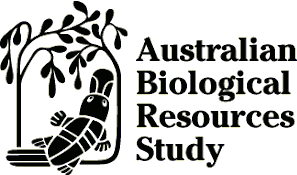Australian Tropical Rainforest Plants - Online edition
Cynodon dactylon (L.) Pers.

Persoon, C.H. (1805) Synopsis Plantarum seu Encheridium Botanicum 1: 85.
Couch grass; Bermuda grass
Stoloniferous mat-forming perennial with slender scaly rhizomes, sward forming. Culms slender, 10-40 cm tall.
Leaf sheaths bearded at mouth, otherwise glabrous or thinly pilose; leaf blades linear, 1-12 cm and -4 mm wide, glabrous, apex subacute; ligule a narrow ciliated membrane with long hairs, up to 1 mm with a few long hairs on the shoulders.
Racemes digitate, (2-)3-6, 2-6 cm, straight or gently curved, spreading; spikelets overlapping by 1/2-2/3 their length. Spikelets 2-2.7 mm long with the rachilla extension ca. 1 mm; glumes linear-lanceolate, often purplish, usually more than half as long as floret, 1.5-2 mm, with a scabrous keel; lemma as long as the spikelet, silky villous along keel otherwise glabrous or lateral veins thinly villous, apex subacute; palea glabrous, keels scaberulous.
Caryopsis subterete, scarcely laterally compressed.
Features not available.
A common plant in all Australian States, occurs in WA, NT, CYP, NEQ and CEQ and widespread throughout Australia. Altitudinal range from near sea level to 1150 m. Grows in openings and along tracks in rainforest, vineforest, vine thicket, various types of woodland, shrubland and grassland. Cosmopolitan species.
Causes HCN poisoning in stock (Webb 1948).
Foodplant for the instar larvae of the Yellow-banded Dart and the Dingy Ringlet butterflies (Common & Waterhouse 1948).
Used extensively as a lawn and pasture grass (Lazarides 1972).





